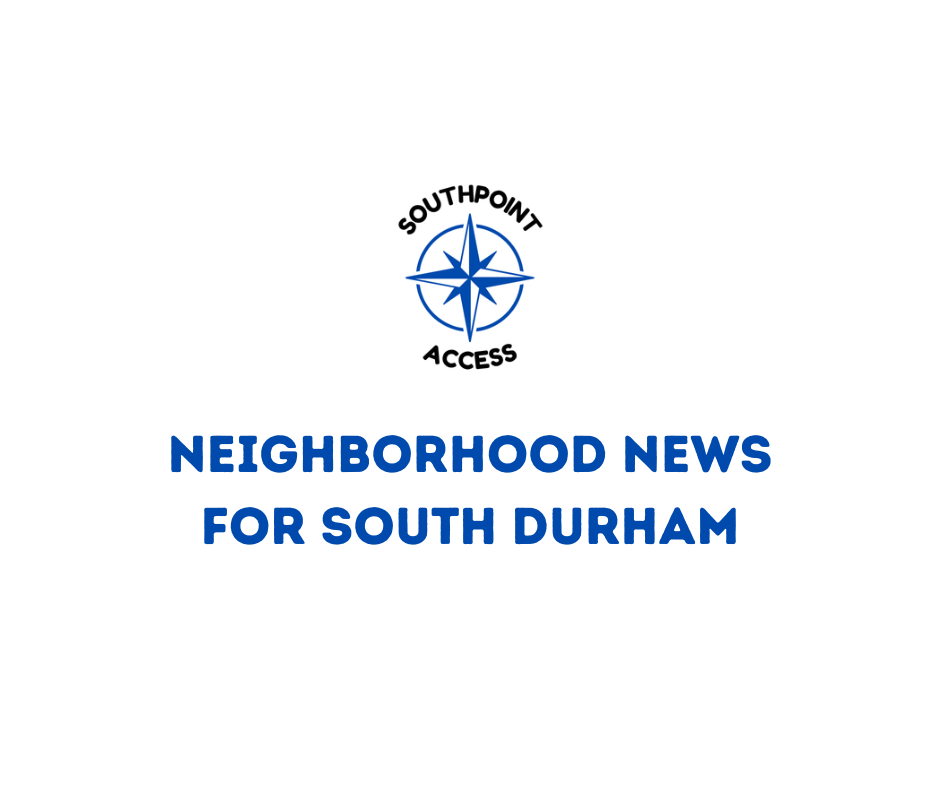Durham Superintendent Presents 100-Day Plan to School Board

Dr. Anthony Lewis, the new superintendent of Durham Public Schools, has submitted an “entry plan” for his first 100 days on the job, detailing five overarching goals:
- Establishing a transparent, collaborative, and trusting relationship with the DPS Board of Education.
- Focusing on instructional programming to close access and opportunity gaps in the lowest-performing schools while addressing the academic and social-emotional needs of all students.
- Enhancing organizational effectiveness and efficiency by providing robust support and services to schools, students, families, and the school community.
- Identifying and analyzing critical issues to remove barriers and seize opportunities for accelerating student performance.
- Creating opportunities to listen to and engage a wide range of stakeholders, ensuring all voices are heard to build trust, understand the district comprehensively, and reignite excitement for the district’s mission, vision, and strategic plan.
“During my first 100 days, I will immerse myself in our vibrant and diverse community, meeting with educators, administrators, staff, students, families, community partners, and the many others who bring our mission of embracing, educating, and empowering every student to innovate, serve, and lead to life,” Lewis wrote in a letter introducing the plan. “I look forward to your feedback and insight as I deepen my knowledge of the district and assess our strengths and opportunities while forging critical connections and relationships.”
In the plan, which he’ll present to the board during tonight’s meeting, Lewis lists several guiding core principles, including:
- Commitment to achievement.
- Passion for learning.
- Integrity and accountability.
- Respect for self and others.
- Educational equity.
- Community partnerships.
Each of his entry plan goals comes with a series of actions that he plans to mark completed over time.
Relationship with the DPS Board
Actions under this goal include:
- Sharing the entry plan with the Board of Education for feedback, suggestions, and guidance.
- Conducting one-on-one meetings with board members to understand critical issues and key perspectives.
- Collaborating with the board on superintendent performance evaluation, including goals, objectives, and success indicators.
- Holding a retreat to align board and superintendent on core values and beliefs, communications protocols, roles and responsibilities, expectations, and governance matters.
Focus on Instructional Programming
Actions under this goal include:
- Analyzing current student achievement data, including academic performance, subgroup achievement, AP enrollment and pass rates, dual enrollment, college and career readiness, attendance, graduation, and disciplinary rates.
- Meeting with the Deputy Superintendent and district leaders to assess curriculum, instruction, assessment, and the literacy and numeracy plan, and understand schools’ progress toward goals.
- Evaluating efforts to improve instruction and graduation rates, with a focus on literacy, numeracy, post-graduation preparedness, socio-economically disadvantaged students, and students with disabilities.
- Engaging with students to understand their perspectives on relationships and access to academic rigor.
- Meeting with staff, students, and families to identify the emotional, social, and cultural supports needed for academic success.
Enhancing Organizational Effectiveness
Actions under this goal include:
- Meeting with district leadership, including the deputy superintendent, chiefs, assistant superintendents, executive directors, directors, principals, the Durham Association of Educators, and classified staff, to assess the climate and culture and determine the level of central office support needed for school improvement.
- Reviewing division and department briefing documents detailing responsibilities, major initiatives, challenges, and time-sensitive decisions.
- Conducting a district SWOT (strengths, weaknesses, opportunities, and threats) analysis.
- Meeting with principals and teachers to gauge their perceptions of student achievement data, quality and accessibility to data, and central services support.
- Reviewing and evaluating efforts in leadership development and succession planning for school and district leadership.
- Reviewing critical documents such as policy and procedure manuals, board meeting minutes, student achievement data, enrollment, and financial projections, budget processes, legal proceedings, facility reports, accountability plans, project management protocols, and safety and emergency plans.
- Assessing the current schedule and format of district leadership meetings to ensure they benefit principals and align with district goals.
- Evaluating the district’s performance management system to ensure effective and efficient operations across departments, with established key metrics and goals.
Removing Barriers and Seizing Opportunities in Student Performance
Actions under this goal include:
- Evaluating the process for setting departmental goals to ensure alignment with the strategic plan and district and board goals.
- Analyzing data from recent surveys, focus groups, and community meetings to identify barriers and opportunities.
- Meeting with the executive director of research and accountability to review ABC data (attendance, behavior, core academics) and discuss accountability measures.
- Visiting all departments and schools to listen and learn from students, families, administrators, educators, and staff.
Creating Opportunities to Listen and Engage
Actions under this goal include:
- Scheduling meetings with parent organizations and district advisory groups for initial listening sessions and discussing critical issues while fostering authentic engagement.
- Attending school and community events to connect with stakeholders.
- Meeting with City of Durham, Durham County, and local elected leaders to understand concerns, opportunities, and the political landscape, and adjust communication protocols to advocate for DPS students.
- Establishing regular meetings with key Durham city and county leaders.
- Meeting with charter school partners, state educational leaders, and legislators to discuss district and state issues and establish communication protocols.
- Launching the Listening, Learning, and Leading Series with community leaders and organizations, including business leaders, higher education partners, nonprofits, philanthropies, professional organizations, civic groups, and faith-based organizations.
- Hosting a roundtable with local media partners, meeting with editorial boards, and establishing a framework for collaboration.
“Partnership is key to advancing our district,” Lewis wrote in conclusion in the report. “This starts with the close collaboration between the Board and the Superintendent to foster a positive, productive culture focused on improving student achievement through the district’s continuous improvement model. Proposed plans and agendas will be communicated to the school community to promote understanding, communicated to the school community to promote understanding, commitment, excitement, and support, with the ultimate goal of making Durham Public Schools the best district in the nation.”
Southpoint Access is an ultra-local news service provided free of charge. We rely on subscribers and advertisers to support our ongoing work. Become a local hero today!



![[Nerdspresso] A Nerdy News Round-Up - Jan. 23, 2026](/content/images/size/w600/2026/01/sinnersjordan.png)

